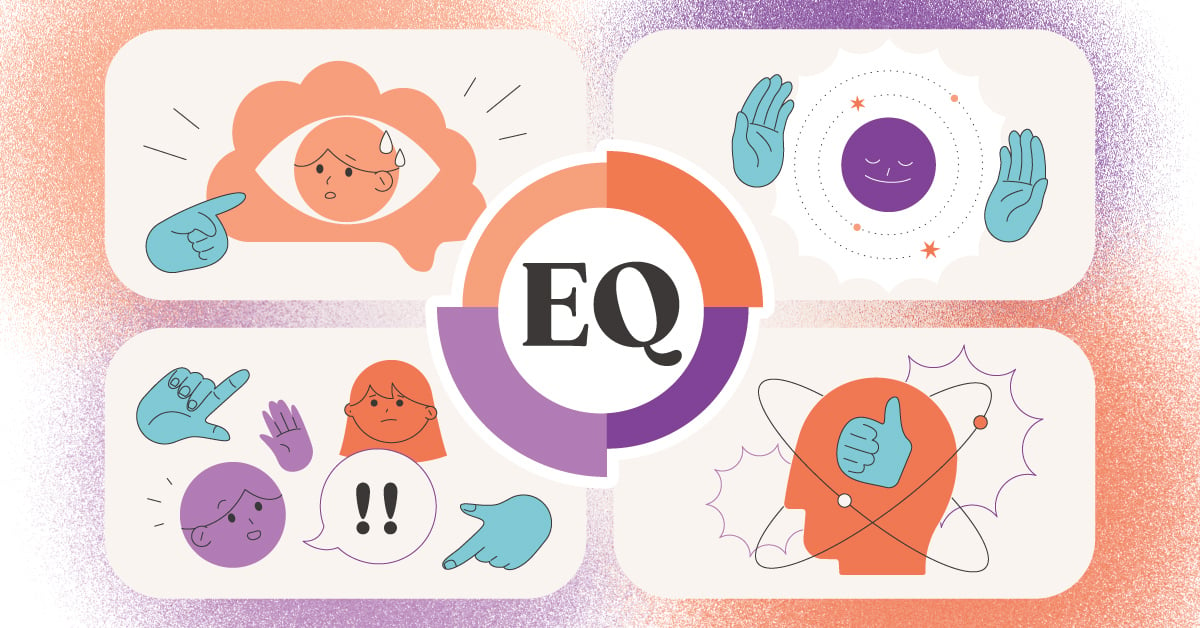
When you work with organizations trying to attract top talent, you start to notice patterns. Juan Kingsbury has. As the Founder of Career Blindspot, he provides leaders with bold and clear insights on their ever-changing teams.
“Soft skills are the best way to keep up with change professionally,” he said.
Soft skills aren’t just a corporate buzzword—they’re a necessary and coveted skillset in the modern workplace. Whether it's communication, emotional intelligence, adaptability, or problem-solving, soft skills are crucial in navigating workplace challenges and contribute to the long-term success of individuals, teams, and entire organizations.
“Finding candidates with soft skills, in combination with job-related skills, will help you fill the role the right way, especially as technology continues to advance,” said Juan. “Candidates need to be able to do the work, but being aware of their own emotional states and having the ability to ‘read the room,’ and to understand others will help ensure their short-term and long-term success in a role.”
Understanding the importance of soft skills is easy, but measuring soft skills accurately can be difficult without the right tools. Here’s how to measure soft skills during hiring.
Conduct Careful Interviews
Measuring soft skills starts with the recruiter or interviewer. The way you conduct an interview can set the scene.
“Ask open-ended questions pointing to a specific skill, but observe for the behavior displayed,” said Juan. “You can get more insight from how a candidate answers than from the words they say. See if the interviewee demonstrates the behavior you’re looking for, rather than giving the ‘right’ answer.”
Since behavior is observable, you can learn a lot from both a candidate’s answers and their body language. Make sure that everyone involved in the interview process is briefed on what behaviors and skills are needed in the role (including soft skills!). The way a candidate conducts themself can reveal more than you might think.
Use Assessments
One of the best ways to accurately measure an individual’s soft skills is to use assessments. Having actual data and scientifically validated information gets you that much closer to finding the right candidate.
TTI Success Insights has several options for measuring soft skills:
EQ (Emotional Quotient): The EQ assessment measures five dimensions of emotional intelligence and a person’s development in each area.
For hiring, EQ is essential for emotionally developed workers. Finding candidates who understand their own emotions as well as the emotions of others can leverage that awareness into improved communication and decision-making. TTI’s EQ assessment digs into the five dimensions of EQ, measuring a person’s emotional intelligence, or ability to sense, understand, and effectively apply emotions for higher levels of collaboration and productivity.
DNA (Competencies): TTI’s Competencies assessment identifies top personal skills, based on how an individual scores on 25 research-based skills required by any job. These skills are ranked from ‘developed’ to ‘needs development.’
For hiring, DNA can enhance role alignment while identifying strengths and development opportunities. “In hiring, I want someone who is eager to make job-related decisions and mindful of the outcomes and consequences,” explained Juan. The DNA assessment can help you find that.
Trimetrix EQ: This combination assessment measures behaviors, motivation, and emotional intelligence by combining DISC, 12 Driving Forces, and EQ assessments.
For hiring, look at these skills in tandem to get a strong sense of what employees need to really engage in their work. It will also give you a sense of how they will operate and the emotional intelligence behind their decisions.
Assessments are valuable in the hiring process because they reveal insights that might not be apparent from interviews. If a candidate is adapting their behavior in an extreme way as they apply for the job, their assessment results can show that adaptation and give you a better sense of their preferred behavior and skills.
That being said, don’t use assessment results to disqualify candidates. They’re a tool in the hiring process but shouldn’t make or break a candidate’s application. “It’s good to know what your non-negotiable skills are in a role versus skills you can train,” said Juan. “Recruits need to know what they want and know what’s a deal breaker.”
Leverage References
Another way to measure soft skills during hiring is to use a candidate’s references. Ask for specific examples rather than overall opinions so you can understand the candidate’s skill set. You can do this by asking targeted questions:
- “Can you tell me about a time when CANDIDATE resolved conflict within their team?”
- "How have you seen CANDIDATE approach problem-solving in difficult situations?"
- "Have you observed CANDIDATE taking initiative in a situation? Can you describe what happened?"
If the job requires specific skills, take this opportunity to ask how the candidate demonstrated them in the past.
While you learn more about your candidates and their work experience, Juan has another tip: “Be cautious of skills that a candidate wants to leverage that you don’t need. If you get someone who has a high skillset and curiosity in one direction that doesn’t have anything to do with the job, they might not be the right fit. They’re bringing something extra to the job, which isn’t necessarily a bad thing, but it will push away other skills that might be essential to the job.”
He gave the example of a candidate who scored as highly developed in Employee Development and Coaching in the DNA assessment. That person wanted to manage others and help them grow, but since the role didn’t call for that skill set, they were ultimately unhappy in the job.
“Most of the time, we find that people prioritize what they care about instead of what the role calls for,” Juan explained. “They might not do it on purpose, but it’s natural to lean into what you’re good at.”
Measuring soft skills during hiring isn’t just about finding the right candidate—it’s about ensuring long-term success for both the employee and the organization. By combining thoughtful interviews, validated assessments, and insightful reference checks, you can gain a deeper understanding of a candidate’s true potential.
Are you curious about taking an assessment or using them in your hiring strategy? We can help.



